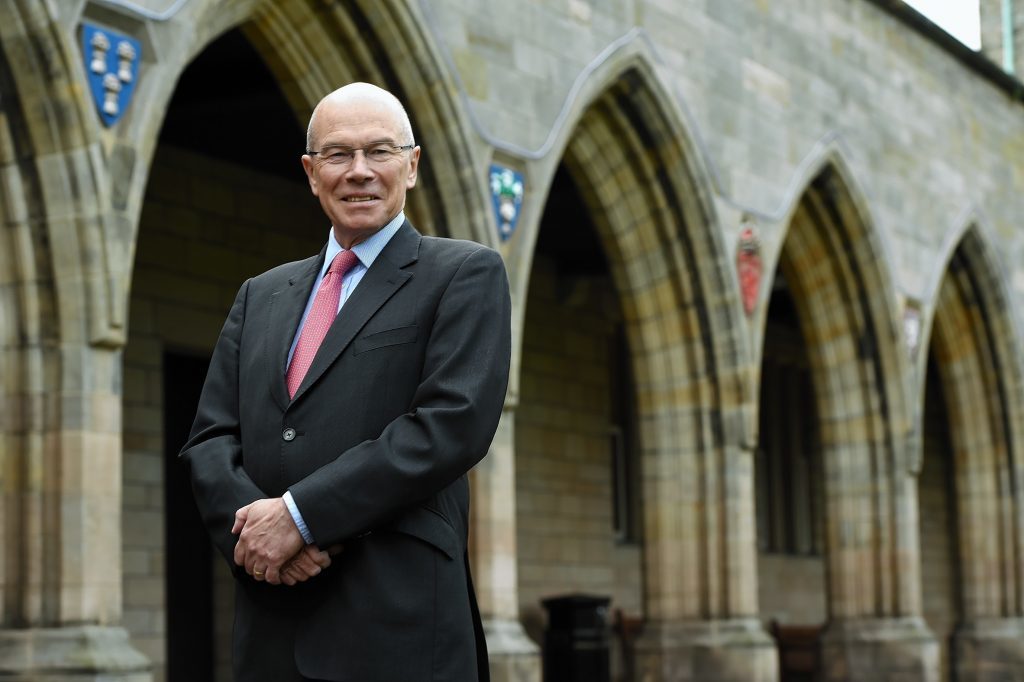
“Sympathy” is what North Sea veteran Paul Warwick feels when asked about the shareholders who lost their investments in Xcite Energy.
“There’s nothing good to say when a company goes down. It’s not good for the employees or the shareholders – it’s a very unfortunate position,” said Mr Warwick, who has taken the helm at the firm which has taken over Xcite’s key asset, the Bentley field.
The Xcite saga will go down as a cautionary tale for prospective North Sea investors.
The company ran into financial trouble after issuing £105million-worth of bonds to repay debts and pay for Bentley in mid-2014.
But it was unable to secure extra funds to pay back the bonds, which matured in full in October 2016.
Bondholders rejected a debt-for-equity swap and an application was filed to place Xcite into liquidation.
Whalsay Energy – a company owned by Xcite bondholders – bought the shares in Xcite for a consideration of $1 (77p) at the end of June, just one day before the Bentley licence was set to expire.
It leaves Xcite shareholders with no hope of recovering any of the money they put into the company.
In some cases, disillusioned investors have lost their entire life savings or their pension pots.
“I have sympathy with people who lost money, but it’s not our problem to solve,” said Mr Warwick, who had no involvement with Xcite and was not a bondholder in the company.
“Whalsay is a different company. That company (Xcite) has ceased to exist.”
Mr Warwick, who has held senior roles at Talisman Energy and ConocoPhillips during a distinguished career, said the priority for Whalsay was to succeed where Xcite failed by developing Bentley.
Xcite had estimated that Bentley, discovered in 1977 and located about 85 miles south-east of Shetland, could produce nearly 300million barrels of oil using enhanced recovery techniques over 35 years.
Mr Warwick said: “The people at Xcite did a lot to develop the field, but for whatever reason that did not work.
“We need to have a plan for that to move forward and do something different. It presents challenges but I have a great liking for the North Sea and a desire for it to be successful.”
The team at Whalsay is busy evaluating how to tackle Bentley, one of the North Sea’s largest discoveries.
Bentley will be a tough nut to crack as it contains heavy oil. The fact that it is offshore only adds to the complexity.
“It’s not impossible, but it is complex,” Mr Warwick said. “That’s why it has not been developed so far.
“We are assessing the technical work done to date and evaluating our view of that resource.
“We are trying to create a future for Bentley.”
Mr Warwick said a number of options are on the table and that Whalsay is keeping an open mind.
He said a tie-back could prove difficult, as the field is far from existing infrastructure.
On the plus side, technology has moved on a great deal compared to when Bentley was discovered, with new drilling techniques and new “slimline” approaches to field development emerging.
Whalsay – which employs about seven people at its Aberdeen office – will also benefit from the significant drop in the North Sea cost base over the last three years.
Furthermore, Whalsay managed to secure a four-year extension on the Bentley licence from the Oil and Gas Authority (OGA).
“We worked very closely with the OGA to work out what was required for creating success for Bentley,” Mr Warwick said.
“Four years gives us the ability to do our thinking and get into action without time constraints that will make it impossible to deliver.
“We had a very professional consultation with the OGA.
“Some people, Xcite investors, will look at this and ask, ‘What is going on?’, but for MER UK this is a good outcome.
“We are focused on getting the field developed, if that is indeed possible.
“The OGA, to my mind, fulfilled its role in pursuing MER UK.”
Mr Warwick – who left Talisman in 2015 after the company was bought out by Repsol – said the chief executive role at Whalsay suited him because he still wants to do “meaningful” work in the North Sea.
He said: “I wasn’t ready to properly retire, but I felt with Talisman it was a reasonable time to go out of that higher level executive role and do something different.
“I had a great time at ConocoPhillips and Talisman. I’ve loved working in the industry, so the thought of not doing anything associated with the industry was not my intention.”
Asked whether he thought North Sea industry had turned a corner after three difficult years, Mr Warwick said: “It’s a bit early to draw that conclusion, but we do have a very innovative industry.
“The people who work in this industry, at all levels, are some of the cleverest people in industry around the globe.
“But when the oil price collapsed the reaction was not instant.
“There is no switch you can flick, but with the level of people’s smartness, industry found a lot of ways to do things to reduce operating costs without damaging safety performance.
“Is that turning a corner? I don’t know. Time will tell, but we should be optimistic.”
Recommended for you

